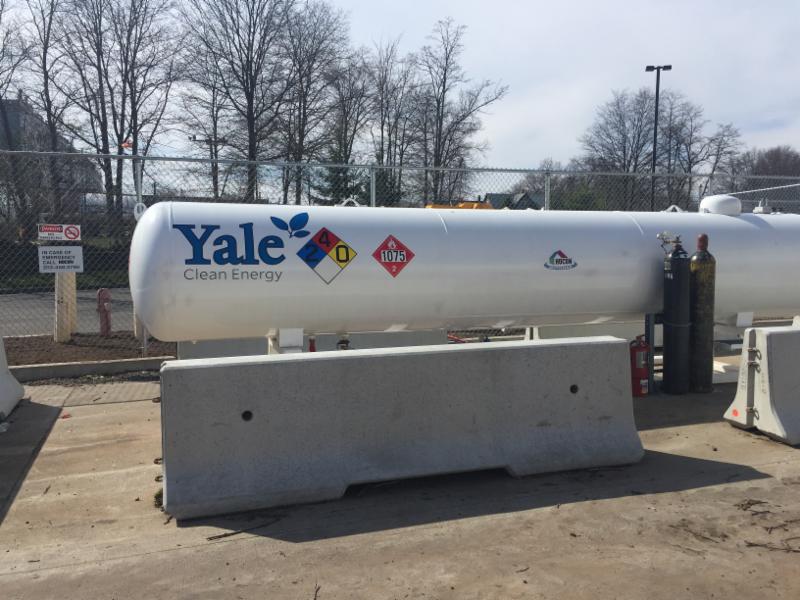|
Yale Fleet Management Update
Yale Fleet Committed to Sustainability
and Reducing their Carbon Footprint
Over the past several years, Yale Fleet Management (YFM) has been piloting different types of alternative-fuel vehicles in an effort to find the best solution for replacing larger vehicles in our including cutaway buses, full size transits and trucks. This was part of the wider university strategy of greenhouse gas reduction and overall plan to make the university fleet more sustainable. After extensive review, YFM initiated two alternative-fuel solutions that will help reduce the university's carbon footprint from vehicle emissions.
Liquid Auto Gas (Propane) and XL-Hybrid-fueled vehicles will now be the standard moving forward when ordering larger fleet vehicles. XL Hybrid is an electric-powertrain hybrid that transforms the original manufacturer's equipment setup into a hybrid vehicle by adding an electric motor, an advanced lithium battery pack and control software that allows fuel savings though regenerative braking and electric motor assist. YFM began introducing these greener alternative fuel vehicles into the Yale Fleet in the fall of 2015. Since that time, there has been a 25% reduction in fuel costs ($30,000) and a reduction of 107 metric tons of CO2 emissions by the Yale Fleet. "We are grateful to the following departments that have embraced this technology: Environmental Health and Safety, Facilities Operations and Yale Transit," said George Longyear, Yale Fleet & Housing Director.

In 2016, Yale purchased a bi-fuel system of gasoline and Propane (technically known as liquid auto-gas) for a smaller cutaway transit fleet vehicle. The bi-fuel system provides 50 extra gallons of fuel per vehicle, enabling the vehicle to keep running longer between fillups. While vehicles running on this system reduce miles driven by 2 MPGs, it is a significantly cheaper fuel and a greener choice. These bi-fuel systems emit less emissions and vehicles running on propane have seen a decrease in maintenance issues.
Recently, with the help of Yale Facilities, a propane fueling infrastructure was installed at 344 Winchester Avenue. "Situating the fueling tank on Winchester was critical allowing for future expansion of propane type vehicles to the Yale Fleet," said Longyear. YFM is currently working with the vendor First Transit to install a second filling station at its Dixwell Avenue Hamden location.
By the end of this year, Yale Fleet will have 27 vehicles that run on propane. "We'd like to thanks our friends in Yale Parking & Transit for utilizing in our pilot program and for Facilities that has recently purchased 12 vehicles in support of alternative fuel sustainability effort," said Longyear.
The Yale Fleet Management Team, led by George Longyear, Director of Yale Housing and Fleet, and Ronald Gitelman, Yale Fleet Manager, is committed to finding alternative sources of power for university vehicles. "We're part of the community that is looking to reduce our carbon footprint, and as a result we are trying to provide different types of alternative fuel vehicles to campus that would help us in that mission," says George Longyear.
For more information, call 203 432-3266 or email yalefleet@yale.edu.
|